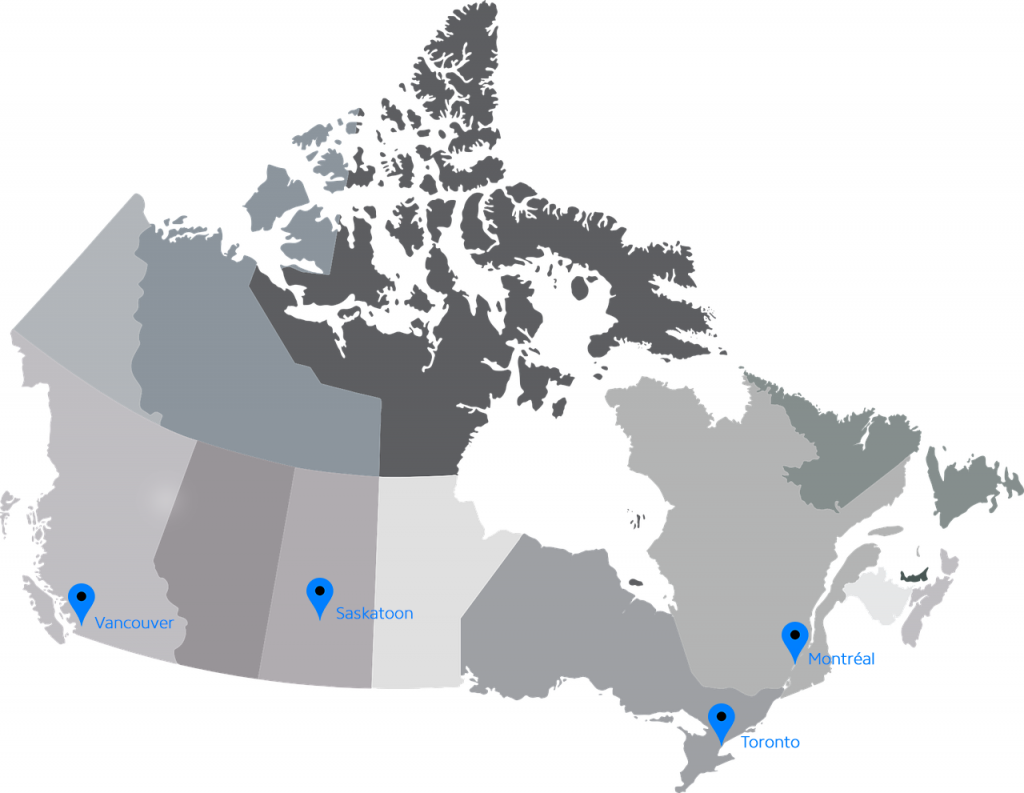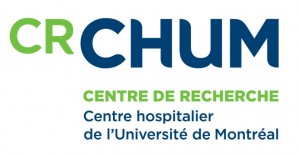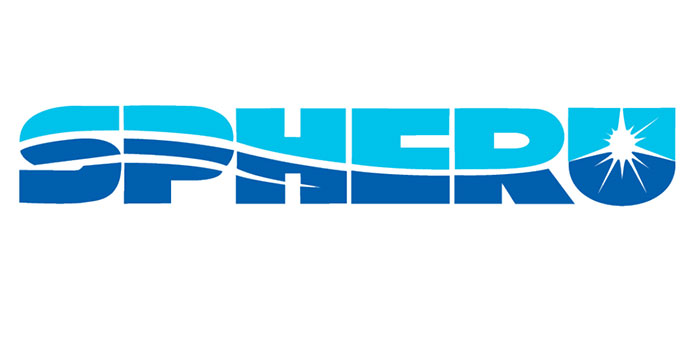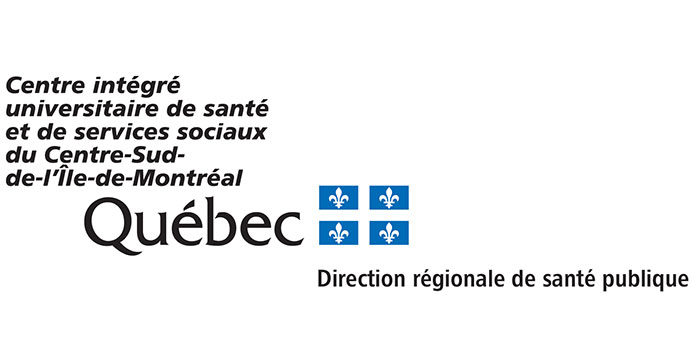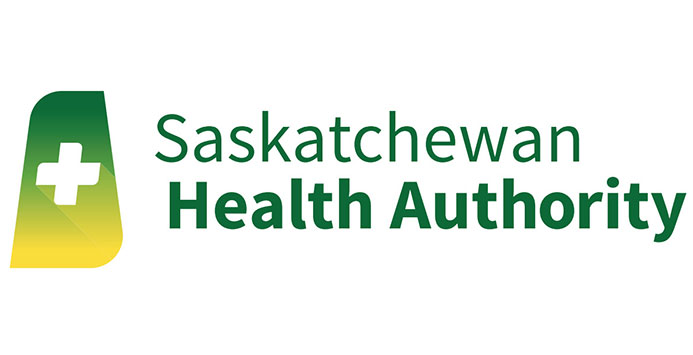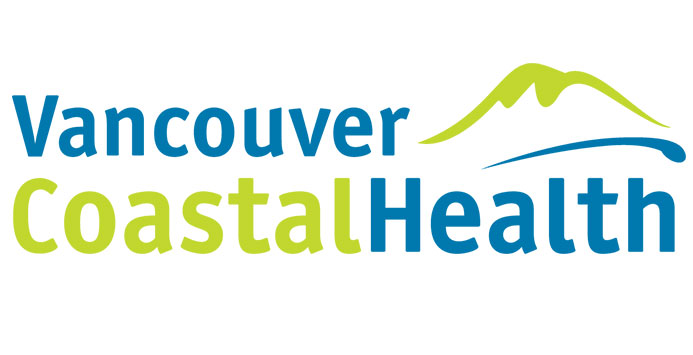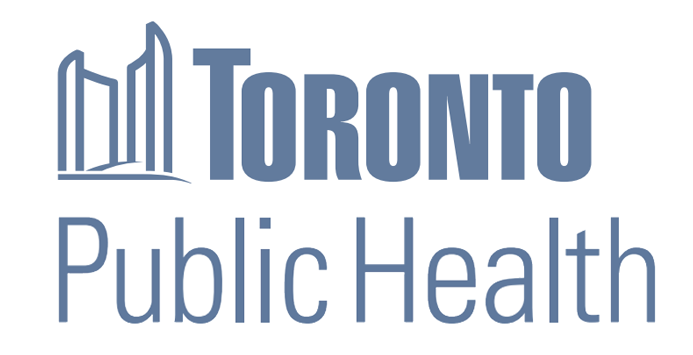Vision
MUSE members aim to act on evidence showing that transforming urban environments to increase the availability of affordable housing, spaces for physical activity, infrastructure for active transportation, and access to services and amenities for healthy eating and living is a promising strategy to improve population health.
Framework
Establishing, nurturing, and promoting Multisectoral Partnerships between public health organizations and municipalities offers an appropriate venue and opportunities for achieving advocacy, stimulating action to transform built environments, and ultimately improving population health while reducing health inequities.
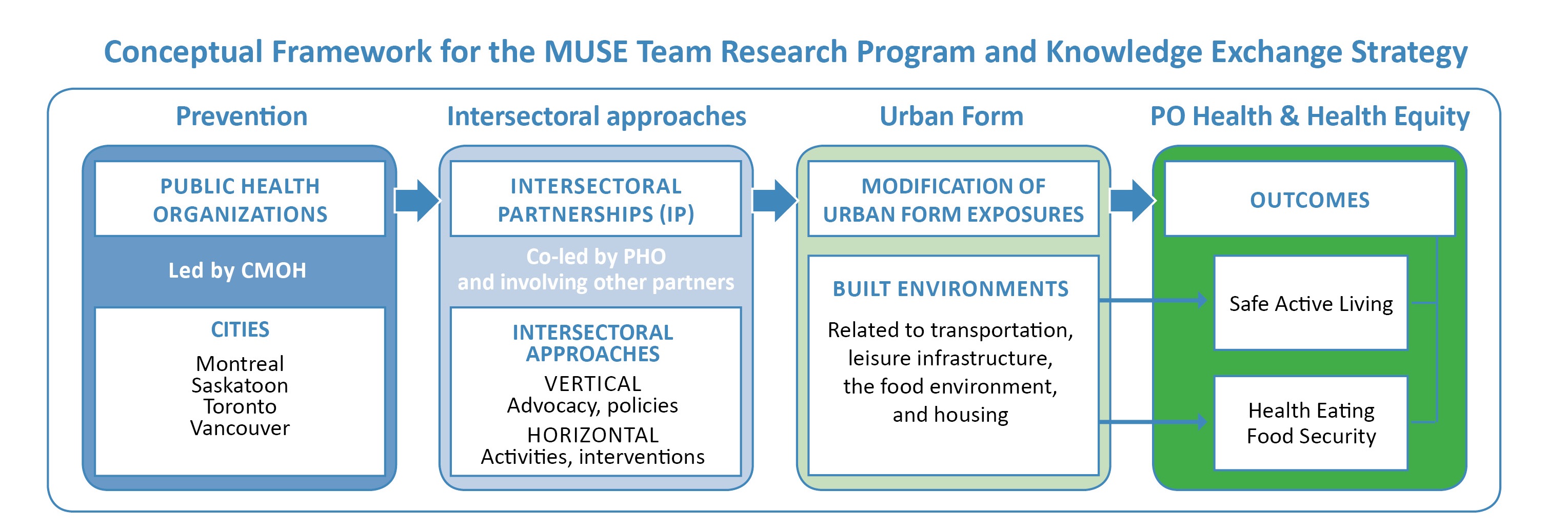
KE Strategy
The integrated knowledge exchange (KE) strategy of the MUSE Team comes to life by: a) identifying research questions that are relevant to knowledge-users; b) carving out evidence that is actionable; and c) crafting ways of disseminating evidence that are meaningful, useable, and a win-win for advocacy.
The Ideas Incubator brings researchers, knowledge-users, and collaborators together to convert real-world practice issues about multisectoral partnerships into research questions that can be scientifically investigated. The DOs and DON’Ts Think Tank offers a venue for researchers and knowledge users to interpret the findings of research projects, identify evidence that is actionable, and design tools to disseminate evidence in a meaningful and useable manner.
Collaboratory
As part of the its research program and knowledge exchange strategy, the MUSE Team created the MUSE Collaboratory web site to generate opportunities for people from across the country to interact with one another. The word collaboratory is a blend of the words COLLABOration and laboRATORY.
The MUSE Collaboratory has two components. The public component contains up-to-date information on the MUSE research program, knowledge exchange, and team members sections. The Collaboration Station is a private space for MUSE team members to work on specific projects and share emerging ideas, expertise, and challenges with regards to multisectoral partnerships, healthy cities, and equity.
Please log in or send us an email to register.
Founding Entities
MUSE projects and ideas emerged through exchanges between researchers and chief medical officers of health working in public health organizations. Even though they were working in different contexts they found common ground in aiming to reduce social inequalities in health by using and producing scientific knowledge.
